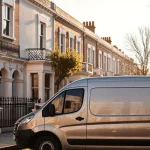Unveiling the Latest UK Electric Scooter Laws: Essential Insights You Can’t Miss!
As the world embraces more eco-friendly modes of transportation, electric scooters have become a popular choice for many, especially in urban areas. However, the legal landscape surrounding these vehicles in the UK is complex and often misunderstood. Here’s a comprehensive guide to help you navigate the latest UK electric scooter laws and ensure you’re riding safely and legally.
Understanding the Current Legal Status
In the UK, the use of electric scooters is governed by a set of regulations that distinguish between privately owned scooters and those rented through official schemes.
Have you seen this : Essential insights for operating your mobile hair salon: a guide to the 2023 uk regulations
Private Ownership and Use
It is legal to buy an electric scooter in the UK, but using it on public roads, pavements, or other public spaces is illegal unless it is part of an authorized trial scheme. This is because privately owned e-scooters do not meet the necessary insurance requirements, which are mandatory for their use in public areas[2].
Police and Crime Commissioner Donna Jones has been vocal about the dangers of privately owned e-scooters, urging parents not to buy them for their children due to the legal and safety implications:
“If you buy your child an e-scooter, you are encouraging them to break the law and putting them at risk.”[2]
Also to see : Stay informed: latest highlights from the farmingdale observer
Rental Schemes and Trials
In contrast, official rental schemes are regulated and insured, allowing riders to use the scooters legally within designated trial areas. To use a rental electric scooter, riders must hold a provisional or full driver’s license, and the rental company provides the necessary insurance[2].
Safety Concerns and Statistics
Safety is a significant concern when it comes to electric scooter use. Here are some key statistics and insights:
Accident Data
In Hampshire and the Isle of Wight, there have been two fatalities and numerous serious injuries related to e-scooter use since 2021. Nationally, there were 1,292 collisions involving e-scooters last year, resulting in six fatalities[2].
Fire Risks
Apart from road safety, there is also a risk of fires associated with e-scooters, particularly those with lithium-ion batteries. The UK Government’s ‘Buy Safe, Be Safe’ campaign highlights the importance of purchasing from trusted sellers and following manufacturer guidelines to reduce the risk of battery-related fires[5].
Regulations and Enforcement
The UK has implemented various measures to regulate and enforce the use of electric scooters.
Operation Crush
In Hampshire and the Isle of Wight, the police have enhanced their powers through Operation Crush, allowing them to seize and destroy e-scooters used in crime. This initiative aims to disrupt criminal activity, reduce the risk of injuries, and make public spaces safer[2].
Inspector Andy Tester of the Hampshire & Isle of Wight Constabulary emphasized:
“Privately owned, powered, two-wheeled vehicles such as e-bikes, e-scooters, and off-road electric motorcycles are not road legal. If these are used in public places, they could be seized, destroyed, and you could receive a fine and points on your licence.”[2]
Key Tips for Safe and Legal Use
Here are some practical tips to ensure you are using your electric scooter safely and within the law:
-
Purchase from Reputable Suppliers:
-
Ensure the scooter meets UK safety standards by looking for the UKCA or CE mark.
-
Avoid counterfeit or non-compliant products[5].
-
Follow Manufacturer Guidelines:
-
Use the correct charging cable and follow the manufacturer’s instructions for charging the battery.
-
Regularly check the battery for signs of damage and never modify or tamper with it[5].
-
Use in Designated Areas:
-
If you are using a rental scooter, ensure you are within the designated trial area.
-
Avoid using privately owned scooters in public spaces[2].
-
Be Aware of Local Laws:
-
Understand the specific regulations in your area, as they may vary.
-
Check with local authorities for any updates or changes in the law[2].
Comparison of Private and Rental Scooters
Here is a comparative table highlighting the key differences between privately owned and rental electric scooters:
| Aspect | Privately Owned Scooters | Rental Scooters |
|---|---|---|
| Legality | Illegal to use on public roads, pavements, or other public spaces without insurance. | Legal within designated trial areas with necessary insurance. |
| Insurance | Not currently possible to get insurance for private use. | Insured by the rental company. |
| Licensing | No license required. | Riders must hold a provisional or full driver’s license. |
| Safety Standards | Must meet UK safety standards, but enforcement is challenging. | Must meet UK safety standards and are regularly inspected. |
| Use Areas | Limited to private property unless part of an authorized trial scheme. | Designated trial areas only. |
| Enforcement | Can be seized and destroyed if used illegally. | Monitored and regulated by the rental company and local authorities. |
Future of Electric Scooters in the UK
As the UK continues to explore more eco-friendly transportation options, the future of electric scooters is under scrutiny.
Ongoing Trials and Reviews
The current e-scooter trials, set to run until May 2026, are crucial in determining the long-term legality and regulation of these vehicles. These trials aim to assess the safety, feasibility, and public acceptance of e-scooters as a mode of urban mobility[1].
Public and Political Comments
There is a mixed response from the public and politicians regarding the future of e-scooters. While some advocate for stricter regulations to address safety concerns, others see e-scooters as a viable, eco-friendly transportation solution.
PCC Donna Jones commented:
“I understand the point being made that e-scooters can be space savers on our busy roads; however, there is a lack of guidance on the illegality of operating a privately owned e-scooter.”[2]
Practical Advice for Riders and Buyers
If you are considering purchasing or using an electric scooter, here are some practical insights to keep in mind:
-
Check Local Regulations:
-
Ensure you understand the specific laws and regulations in your area before purchasing or using an e-scooter.
-
Choose Safe Products:
-
Buy from reputable suppliers to avoid counterfeit or non-compliant products.
-
Look for the UKCA or CE mark to ensure the scooter meets UK safety standards[5].
-
Follow Safety Guidelines:
-
Always follow the manufacturer’s instructions for charging and maintaining the scooter.
-
Be aware of the risks associated with lithium-ion batteries and take necessary precautions[5].
-
Consider Rental Options:
-
If you want to use an e-scooter legally, consider renting one through an official scheme.
-
Rental scooters are insured and regulated, providing a safer and more legal option[2].
The use of electric scooters in the UK is a complex issue, fraught with legal, safety, and regulatory challenges. By understanding the current laws, safety concerns, and practical tips outlined above, you can make informed decisions about your use of these vehicles.
As the UK continues to navigate the future of urban mobility, it is crucial for both riders and policymakers to prioritize safety, compliance, and the well-being of all road users. Whether you are a seasoned scooter rider or a potential buyer, staying informed is key to ensuring a safe and enjoyable riding experience.









